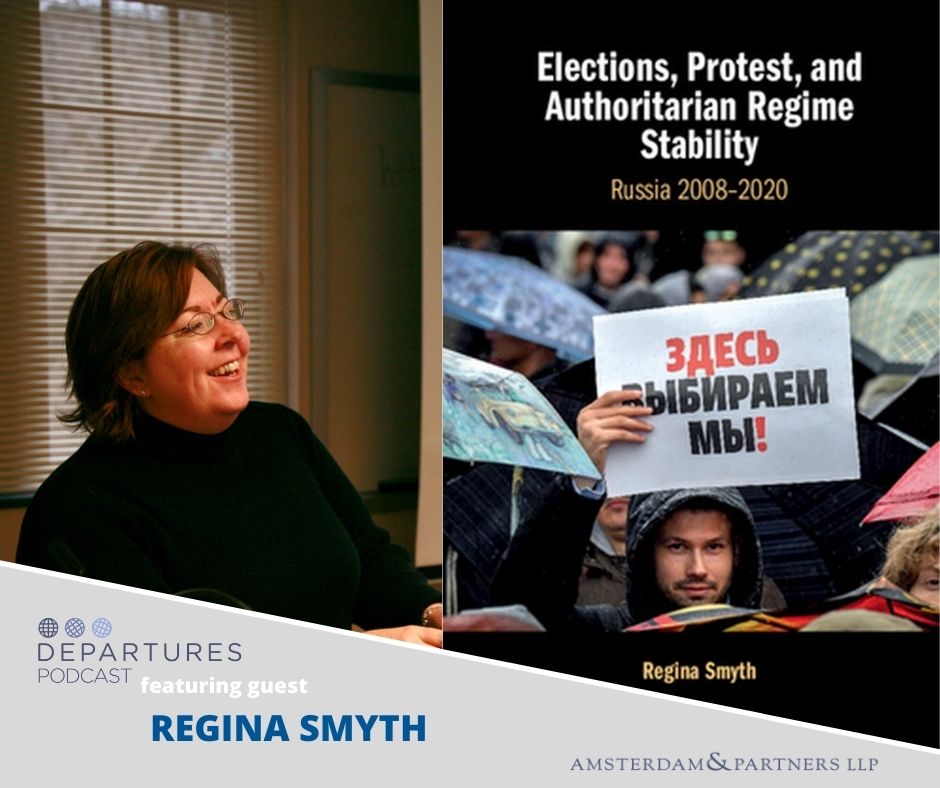Departures Podcast with Regina Smyth, author of ‘Elections, Protest, and Authoritarian Regime Stability: Russia 2008–2020’

There is little debate over the fact that Russia is an authoritarian state in Vladimir Putin’s grip, one which oppresses the rights of its citizens and suppresses the voice of the political opposition. But this does not mean that elections and the democratic process – weakened as it may be – is not still important in terms of applying pressure on the Russian government and constraining and shaping its choices.
In her fascinating new book, “Elections, Protest, and Authoritarian Regime Stability: Russia 2008–2020,” Prof. Regina Smyth of the University of Indiana explores these questions, closely studying a decade of elections to determine how much electoral competition matters to the Putin regime and how competition leaves Russia more vulnerable to opposition challenges than is perceived in the West.
“When there is so much manipulation of elections, elections aren’t about winners and losers per se, they are about the information or what you learn from the electoral process,” Smyth argues. “Do you learn that the state is strong, or do you learn that the state is afraid of its people and its voters? Do you learn that the opposition can unify, or do you learn that it is simply fragmented?”
Smyth dedicates some terrific research into the regime’s response to the rise of opposition leader Alexei Navalny, and what those responses mean in terms of the stability of Putin’s administration.











